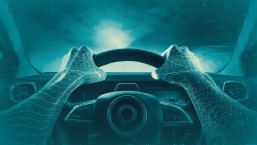As one media outlet described it, this weekend internationally acclaimed barrister Amal Alamuddin married an actor.
Yes, our congratulations from everyone at We Live Security go to the world-famous human rights lawyer who married that guy who played important roles in Spy Kids 3D: Game Over and Grizzly II: The Predator - perhaps better known to you and me as George Clooney.
Clooney and Alamuddin were clearly keen that the wrong sort of people didn't intrude on what they wanted to be a private celebration of their love for each other, as scores of VIPs and celebrities arrived at the ceremony in Venice, via the Grand Canal.
But each of those special guests had been given strict instructions on how to help keep images and details of the wedding festivities beyond the reach of tabloid journalists and hackers.
As The Telegraph reports, wedding guests were allegedly told to leave their personal smartphones and tablets in their hotel rooms.
Now I can fully understand Clooney's team being nervous of photographs and other information leaking out from the poorly protected accounts of celebrity guests. After all, the internet has been full of nude Hollywood stars in recent weeks, after their private photos were hacked.
How were George Clooney and Amal Alamuddin to know if the celebrities they had invited to their three-day wedding party hadn't already had their accounts compromised, and might be unwittingly leaking information and snaps?
But the precaution taken by the newly-weds wasn't taken purely because of hackers, but because the couple are said to have sold the rights to the wedding photographs to an American magazine, in return for a charitable donation.
Frankly, it doesn't matter who is trying to get their hands on images that should remain private - the important thing is that they remain properly secured.
According to TMZ and Business Insider, smartphone-addicted guests were given a their very own "burner" phone which served as a ticket for the event, along with instructions on smartphone security:
The phones you've been given have a code. That is your ticket to everything. We will be taking lots of pictures...but we have to work very hard to keep our pictures our pictures.
Clearly Mr and Mrs Clooney had tight control of the phones, and I am sure they would have taken measures to ensure that they could track who took what photographs, and leave them off their Christmas card list if anyone were ungracious enough to share a pic taken on their burner phones with the tabloids.
Tactics like this might work for a three-day party, but are sadly impractical and beyond the budget for most of us. Make sure you choose your friends carefully, teach them the importance of good online security, and - if that proves too tricky - ensure that you're never photographed doing something you might later regret.
Whether you were lucky enough to get an invitation to the Clooney's nuptials or not, here are some good tips for better security online:
- Choose hard-to-guess passwords to protect your online accounts, and make sure that they're unique. A password manager tool can help you with the tricky task of remembering different passwords for many different websites.
- Where available, turn on two factor authentication. That can help if your password is ever grabbed by criminals - as it still won't be enough information for them to crack into your accounts. 2FA - which is available for many sites including Facebook, LinkedIn, Twitter and iCloud - makes life much harder for hackers, as they are unlikely to know the one-time-password that the site will demand if someone tries to login from an unknown device.
- Encrypt your sensitive information before you put it in 'the cloud'. That way if an online service does get hacked, the bad guys won't be able to do anything with your information as they shouldn't be able to decrypt it.
- Encrypt your online communications, and cover your tracks, by using a VPN. VPN (virtual private network) technologies can ensure that your communications are always encrypted, and can't be sniffed out of the air - even when you're using public WiFi hotspots.




